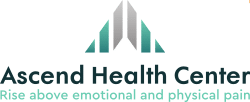What is treatment-resistant depression?
Depression affects millions of people around the world. Roughly 14.8 million Americans experience depressive symptoms every year. That’s 6.7% of the population.
If your thoughts of sadness or loneliness have lasted an extended period of time and are preventing you from leading a normal, active life, it’s time to seek help.
But what if you’ve tried talk therapy and medication but your symptoms aren’t improving? You may have treatment-resistant depression. While this phrase sounds pretty scary, there’s no need to worry – many patients don’t find relief after trying several pills, and there are alternative treatment options available for you an easy driving distance on Ridgewood Road from Medina, Sebring, and Sharon Center.
What should I do if my antidepressants stop working?
Taking prescribed antidepressants eases depression symptoms for most people. But for people with medication-resistant depression, these standard treatment options just aren’t enough. They may not notice a change at all, or the symptoms improve only temporarily and keep coming back.
Symptoms of treatment-resistant depression can range from mild to severe and sometimes require numerous approaches to figure out what truly helps.
Your doctor may need to change your medication prescription or adjust the dosage. You can also ask them to recommend a psychiatrist, a medical doctor who specializes in diagnosing and treating mental health conditions.
During psychological counseling, a psychiatrist can help pinpoint underlying concerns that are adding to your depression. If talk therapy does not reduce your symptoms, they may suggest alternative treatments to depression.
Alternative treatments for depression
A depression holistic treatment may be the right solution for you. We work closely with several practices in the Medina area, including Recovery Center of Medina County in their fight against addiction. The Marigold Collective is a holistic center which includes Purposeful Eats (nutritionist) and Practical Healing (Functional Medicine).
Two popular alternative treatments for depression are ketamine infusion therapy and transcranial magnetic stimulation (TMS).
Ketamine treatment for depression
Ketamine is a fast-acting anesthetic that is safe for treating chronic pain and mental health conditions. Administered through an IV or as the nasal spray Spravato, ketamine therapy helps the brain build new neurons, decreases inflammation, and allows the neurons to communicate more effectively.
Since ketamine is faster-acting than antidepressants, it can create immediate relief from major depression and suicidal ideations. IV ketamine infusion can quickly reduce life-threatening thoughts. During and after treatment, patients have described the effects as feelings of peace, compassion, and love.
Approximately 70% of patients experience a significant reduction in their symptoms. Many people experience these results during their very first infusion, which makes it a faster-acting treatment than common depression and anxiety medication and talk therapy. Medina’s ketamine clinic Ascend Health Center is located east on Ridgewood Road at the Fairlawn/Copley border.
SCHEDULE A KETAMINE CONSULTATION TODAY
TMS for treatment-resistant depression
Transcranial magnetic stimulation (TMS) is an FDA-cleared non-invasive procedure for treatment-resistant depression. It delivers magnetic impulses through an electromagnetic coil to the prefrontal cortex, the region of the brain associated with mood control.
TMS helps nerves begin to communicate again and reinforces positive nerve pathways. This treatment lasts less than four minutes. Yes, you read that right – in under four minutes, you can be on the path to feeling better. Therapy takes place five days a week for four to six weeks and is covered by most insurance plans. Our Medina TMS clinic at Ascend Health Center also offers treatments for OCD and anxiety.
This drug-free, non-invasive, FDA-cleared therapy could be the treatment for depression you’ve been waiting for.
